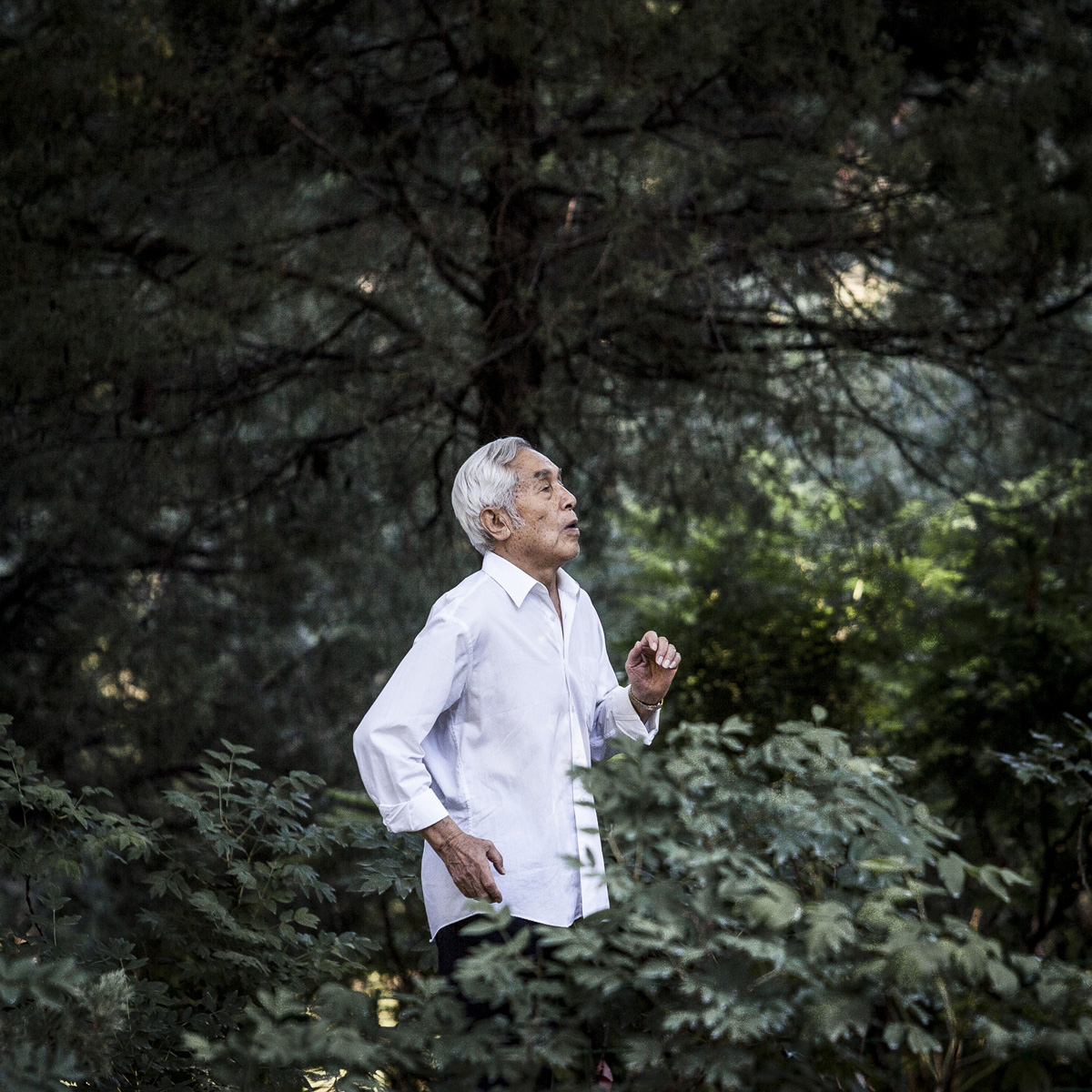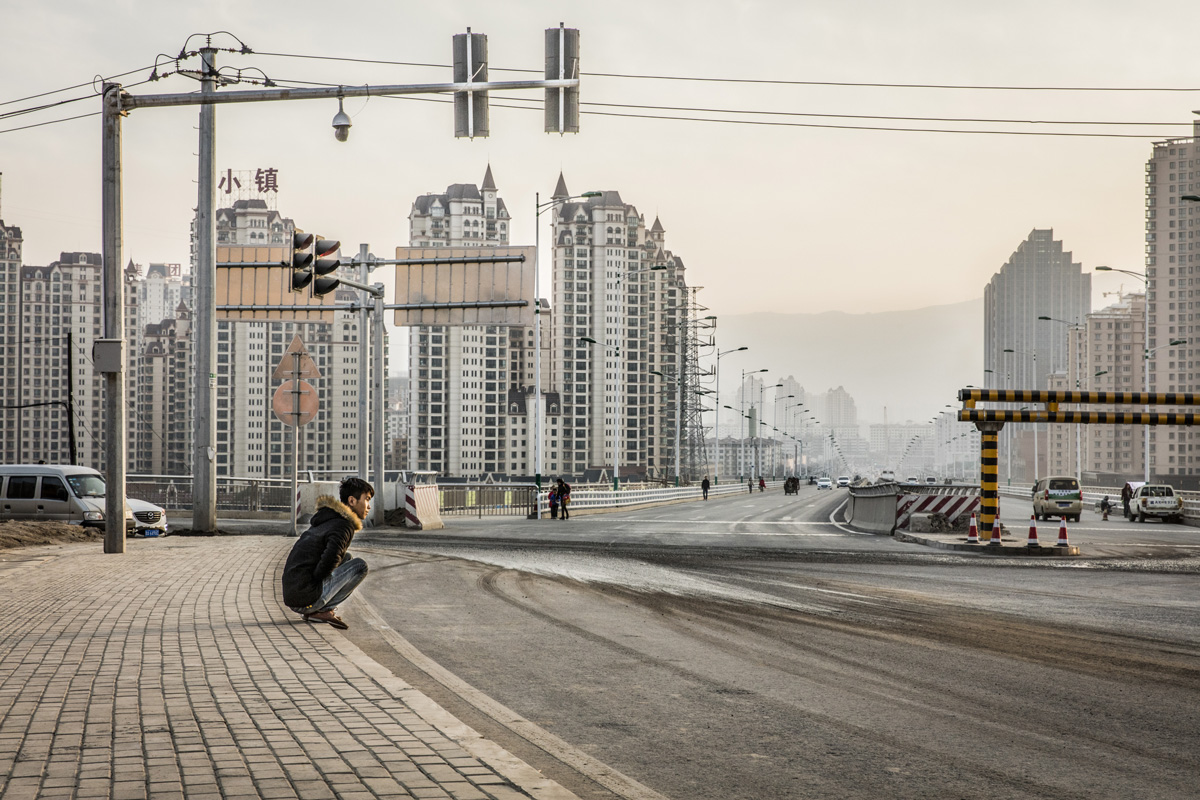Les Pékinois – parmi les plus âgés – ont coutume d’aller le matin dans les nombreux parcs de la ville pour pratiquer le Tai-Chi, faire de la gymnastique, du cerf-volant, danser, se connecter aux arbres…ou plus simplement encore marcher, penser, respirer et oublier la pollution aux particules fines et le smog ambiant.
Lanzhou, Present perfect Faubourgs nord-est de Lanzhou., homme acroupi le long d un trottoir, attendant vraisemblablement un bus et camera de video surveillance. Situee sur l’ancienne Route de la Soie, au nord ouest[...]

